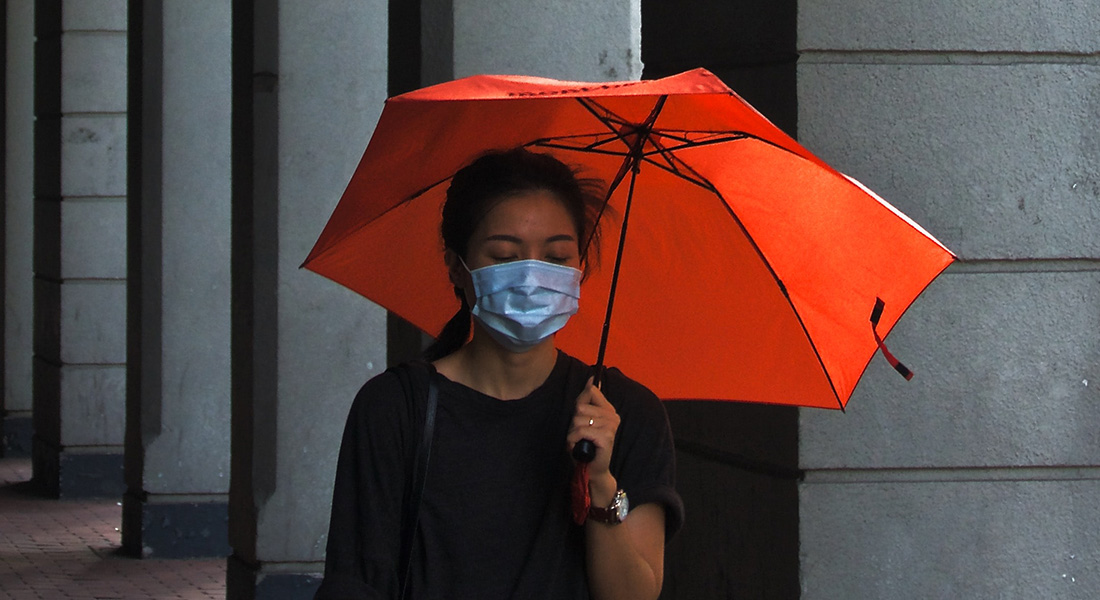Psychological tools for promoting corona restrictions: Empathy is key
In a new set of studies, researchers from faculties of social sciences at University of Copenhagen, Aarhus University and Ulm University in Germany have shown how empathy for vulnerable individuals promotes physical distancing and wearing face masks. Studies conducted among American, German and British citizens show what triggers our behaviour, and how authorities need to tailor future communication to succeed.

Social distancing and wearing face masks are two well-known restrictions nowadays aimed to curb the spread of corona virus. But such new behavioural regulations are sometimes hard to adhere to. In a new research article that will appear in the renowned academic journal Psychological Science, researchers take a thorough look into the human mind and the psychology behind changing our behaviour with regards to corona restrictions.
Plain information is not enough
Together with his research team Robert Böhm, Professor of Applied Social Psychology and Behavioural Science at the Faculty of Social Sciences, University of Copenhagen, has tested whether empathy for vulnerable others, such as elderly, is related to the motivation for physical distancing. Moreover, they investigated whether inducing empathy increases the motivation to wear face masks and keep a physical distance.
‘We found that we can actually use empathy as a tool to increase people’s motivation to follow rules that can save lives’, says Robert Böhm and stresses that the research shows that providing individuals with mere background information about the importance of following the rules were not enough to increase their behavioural motivation. The studies showed a significant effect only when empathy was added.
New behaviour as consequences
The new restrictions derived from the corona outbreak have required behavioural changes from all of us. And the two main behavioural changes, physical distancing and wearing face masks, come at a cost. This is an important point in understanding why it is difficult for many to tap into the new behaviour. Robert Böhm explains:
‘It is psychologically costly not being able to have social contact with the ones you love. The same applies to wearing face masks in public, which many find unpleasant’.
Therefore, the research team sought to identify an intervention that increases people’s motivation to accept these costs and follow the important restrictions.
Emotion as a life-saving tool for policymakers
In four studies conducted among more than 3,700 citizens in total just before and under the COVID-19 pandemic lockdown in Western countries, the researchers tested how different unemotional (information only) and emotional (empathy-inducing) communication interventions influence people’s motivation to adhere to physical distancing and wearing a face mask.
‘Our main finding is that empathy is key. Policymakers should consider enriching mere information with emotional content to change the habits of citizens’, says Robert Böhm.
The studies are part of a non-profit research project, the COVID-19 Snapshot Monitoring (COSMO) in Denmark, carried out by the University of Copenhagen with additional financial support from the Lundbeck Foundation. The project is part of a large international COSMO initiative coordinated by the World Health Organization's (WHO) regional office in Europe.
Article: Pfattheicher, S., Nockur, L., Böhm, R., Sassenrath, C., & Petersen, M. B. (2020). Empathy promotes physical distancing and wearing of face masks during the COVID-19 pandemic. Psychological Science. https://journals.sagepub.com/doi/full/10.1177/0956797620964422.
Contact
Professor Robert Böhm
Department of Psychology
rb@psy.ku.dk
